Teaching Awards
Recognizing excellence
& innovation in teaching

Great teachers have the ability to open students’ minds to the widest range of possibilities, inspire curiosity and questioning, and guide students along their academic journey. They bring energy and excitement to their classrooms, advance the research mission of the university, and support our students in achieving academic success.
Every year, the University of Oregon recognizes the excellence of its faculty with Distinguished Teaching Awards. These awards are made possible by the generosity of A.J. Ersted and Thomas F. Herman. They help us recognize some of the most engaged, inclusive, and research-led teachers at the UO.
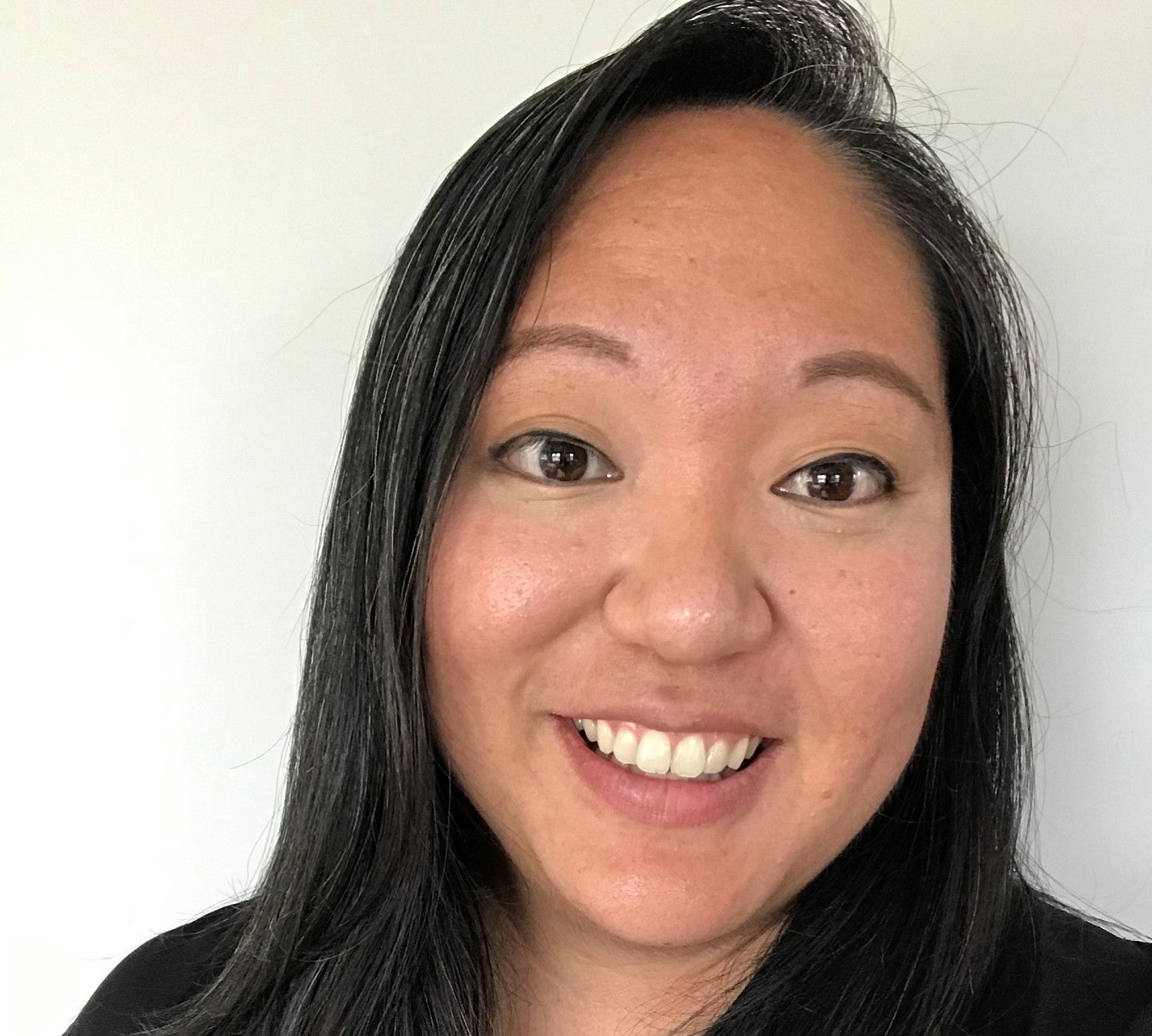
AJ ERSTED AWARD FOR DISTINGUISHED TEACHING
tia north
English

| Question | Answer |
|---|---|
| What does winning this award mean to you? | Winning this award means that I’ve had great teachers in my life—humble and courageous individuals who shared with me a collective vision of what might be possible for the students in our classrooms—and who modeled the dignity and strength it takes to live that possibility as a reality. I’m still learning from them. |
| How would you describe what you do to someone outside of the UO? | Through reading and writing, I teach students that language and identity matter. They are the vehicles in which power is constructed and where the most radical liberation can happen. |
| What’s the most inspiring classroom moment you’ve experienced, either as a student or a teacher? | I stood on the sacred ground of Mauna Kea and watched the sunrise with my ʻohana. I stand there still. |
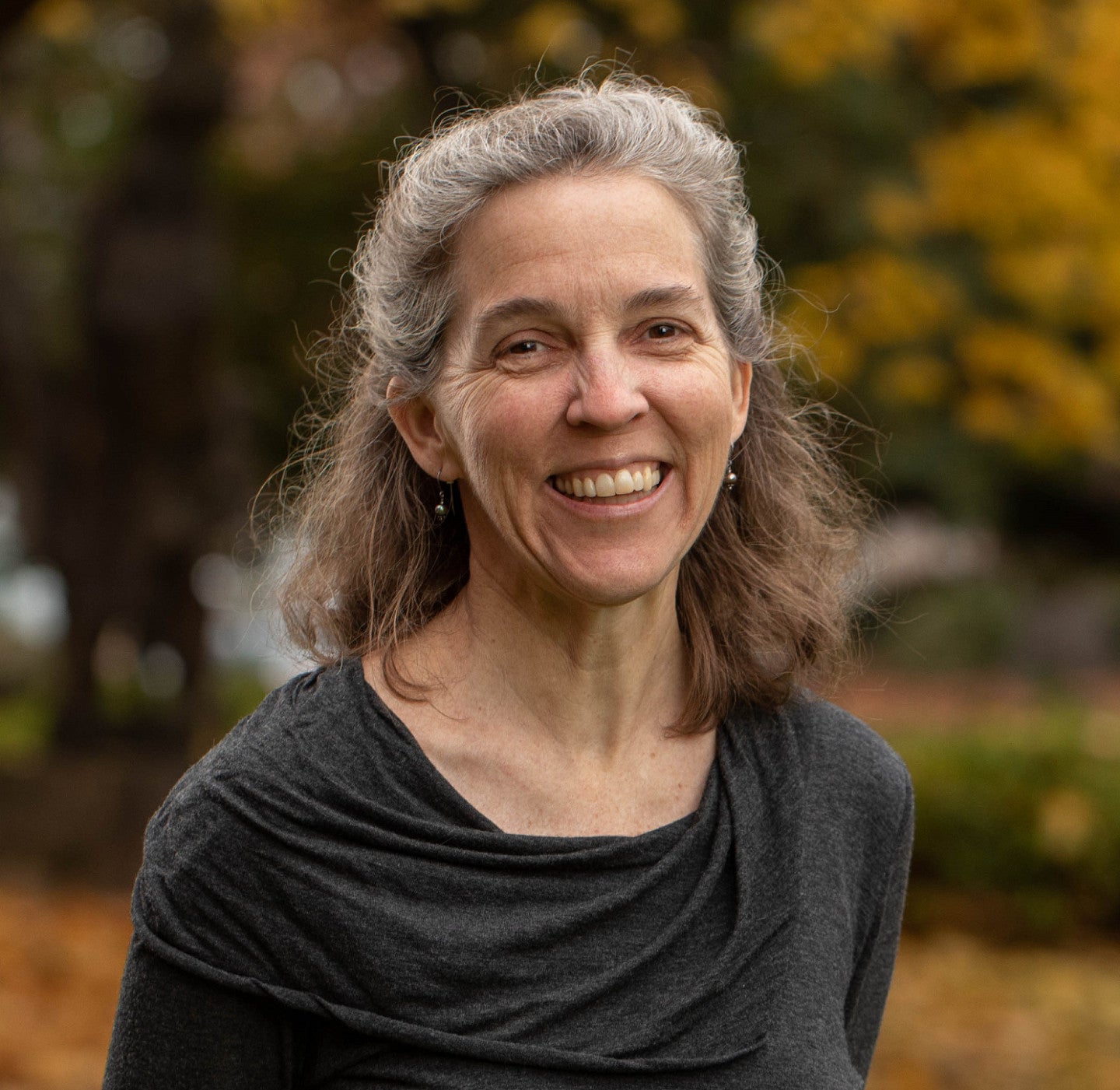
THOMAS F. HERMAN FACULTY ACHIEVEMENT AWARD
Katie Lynch
Environmental Studies

UPCOMING CLASSES
-
FALL 2022
ENVS 410/510: Understanding Place-the McKenzie Watershed
In this class, we will contemplate the meaning of “place,” what contributes to a sense of place, and how it influences people’s worldviews and choices. Using the McKenzie watershed as our geographical frame, we will use an experiential, community-based learning approach to explore ‘place’.
-
wINTER 2023
ENVS 425/525: Environmental Education in Theory & Practice
This class is the first quarter of the Environmental Leadership Program’s two-quarter Environmental Education projects. This course prepares students for their spring ELP projects by introducing them to their team, community partners, project background, and protocols.
-
WINTER 2023
ENVS 410: Trails Team
This is the first quarter of the ELP’s two-quarter project looking at outdoor recreation and accessibility to trails. This team will be working in collaboration with Travel Lane County.
-
Spring 2023
ENVS 429 ELP: Eugene, Cascades & Coast: Trail Accessibility Study
Students will spend this term doing field research focused on evaluating access, accessibility, and amenities of various destination trails.
| Question | Answer |
|---|---|
|
What does winning this award mean to you?
|
It is incredibly rewarding to mentor teams of students doing meaningful projects in the community, and I feel honored that this work is being recognized.
|
| How would you describe what you do to someone outside of the UO? |
As co-director of the Environmental Leadership Program (ELP), I develop and implement interdisciplinary, community-based learning projects for undergraduates at UO. The ELP is housed in the University of Oregon’s Environmental Studies Program, but we are open to all juniors and seniors from any majors. We match student teams with non-profit organizations, governmental agencies, and businesses to address local environmental needs. Usually we run six projects a year. The goal is for students to gain hands-on experience applying what they’ve been learning in class to address real environmental issues in the community. We have an explicit focus on helping students develop the skills that they’ll need to succeed in any career- collaborative team work, communication skills, creative problem solving, and leadership. Plus students build professional networks while having fun working out in the community. “Making connections” is central to all my work. My classes and ELP projects provide opportunities for students to use and apply the knowledge they’ve gained in their courses and life experiences, thus helping them make connections between their coursework and future careers. Many of my projects focus on restoring our connections to the natural world and each other, and by doing so they provide an opportunity to mentor students to think systemically about how environmental and social justice issues are connected.
|
| What’s the most inspiring classroom moment you’ve experienced, either as a student or a teacher? |
Most inspiring moment is really hard to pin down - there are so many! It is always inspiring to watch as students embrace the challenge of an ELP project, work through the challenges, and in the end have a positive impact in the community. I love watching the transformation, from when they first step nervously into their field experiences to the end when they exude confidence and can see the real impact they’ve had. My environmental education projects always yield very sweet results – it is always wonderful to watch how the elementary school children bond with the UO students and how that in turn inspires them to keep doing good in the community. |
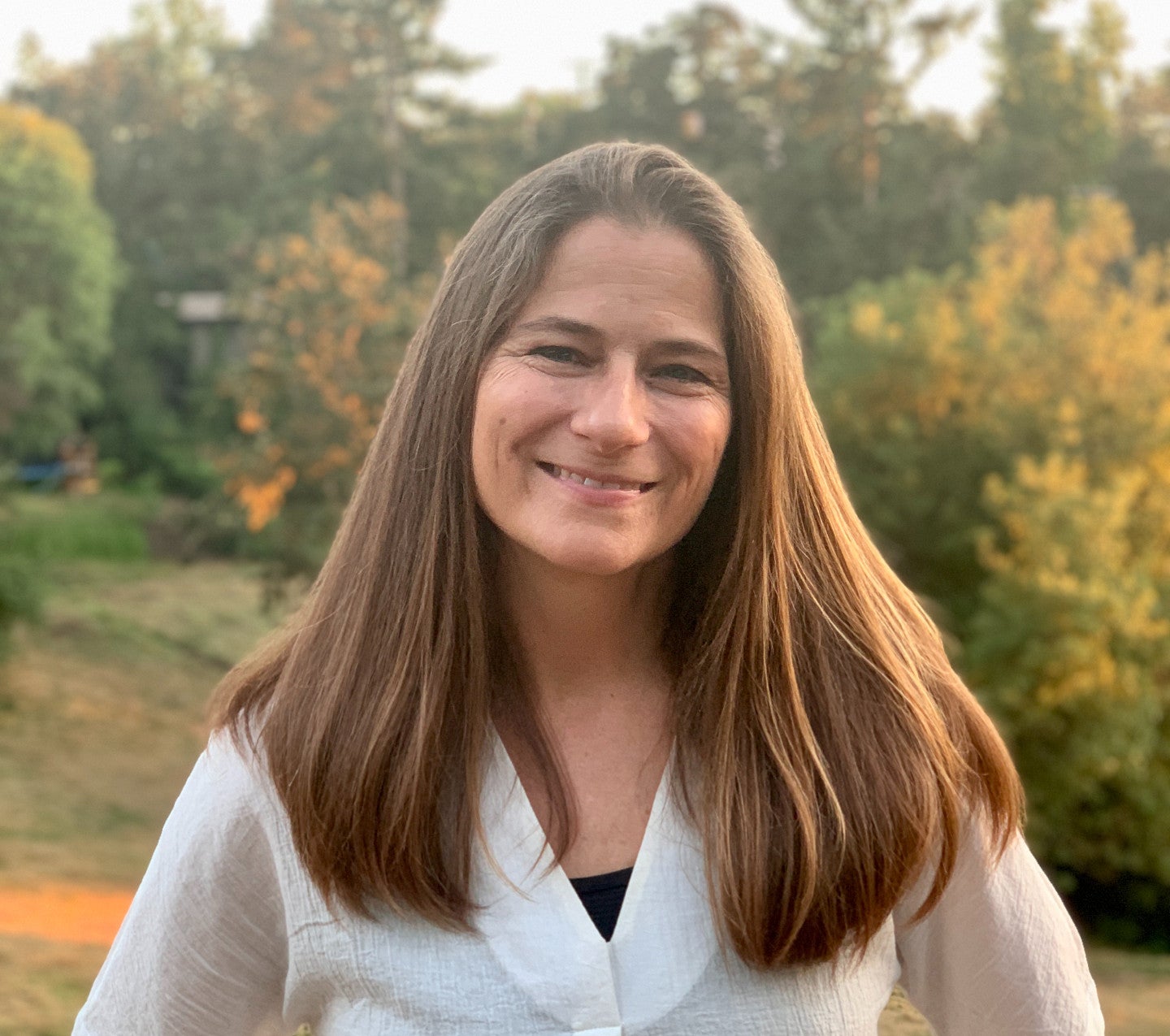
THOMAS F. HERMAN AWARD FOR SPECIALIZED PEDAGOGY
Keli Yerian
Linguistics

| Question | Answer |
|---|---|
|
What are the upcoming classes you’ll be teaching? |
This year I will be mostly teaching courses related to language teaching that count towards the undergraduate Second Language Acquisition and Teaching (SLAT) certificate as well as the MA degree in Language Teaching Studies. These are LT 436/536 Design for Language Learning Systems and LT 448/548 Curriculum and Materials Design. This Fall I will also be teaching a FIG (Freshman Interest Group) class that is linked to LING 144 How to Learn Languages - a class I highly recommend! In Spring I'll be teaching LING 491/591 Sociolinguistics, which explores the connections between social and linguistic behaviors. |
| What does winning this award mean to you? |
Every time I think of the fact that I received this award it makes me smile. It gives me joy and energy to know that I have touched others enough to result in a nomination. |
| How would you describe what you do to someone outside of the UO? |
Along with my other colleagues in the Department of Linguistics, I help students uncover the importance of language in our lives, and the power it has to communicate not only what we are thinking but who we are as social beings, across all the diversity of human cultures. Like the proverbial fish in water, we use language constantly to live our lives but often do not notice its patterned complexities. In classes like Sociolinguistics we look at how these patterns correlate with social groups as well as, for example, how they reveal the ways we negotiate power or communicate our intentions in subtle ways that only in-group individuals might notice. In the 400/500 level language education classes I teach, my students are becoming teachers themselves. They are usually individuals who love learning and using more than just one language, and I have the great pleasure of sharing with them ways to guide their own students to appreciate and learn languages in active, culturally rich ways. Language is such an amazing cultural and human resource, and when I teach future teachers, I feel like I am investing in maintaining the diversity of this resource. I suspect that one reason I was nominated is that my students have learned to appreciate the challenge of good teaching. |
| What’s the most inspiring classroom moment you’ve experienced, either as a student or a teacher? |
I experience inspiring moments all the time in teaching, so it's hard to choose just one! Students are very active in my classes, so my inspiration often comes from what they do with the class material on a daily basis, and it is often surprising and delightful. In LING 144 How to Learn Languages last Spring for example, 70+ students were milling around in a game asking questions in any languages other than English (including using gestures of course!) and I was able to witness how their anxiety about communicating multilingually melted away as students laughed and came up with creative ways to accomplish their goals. When I asked for volunteers to model this activity in front of the class at different language levels, I had immediate takers. This showed me that my own goal of making multilingual discourse positive and motivating was succeeding, and that these students would be a little more likely to take their language learning beyond the classroom without hesitation or embarrassment. And of course, when I see the many upcoming teachers I mentor achieving these goals themselves with their own students, I am doubly inspired. |
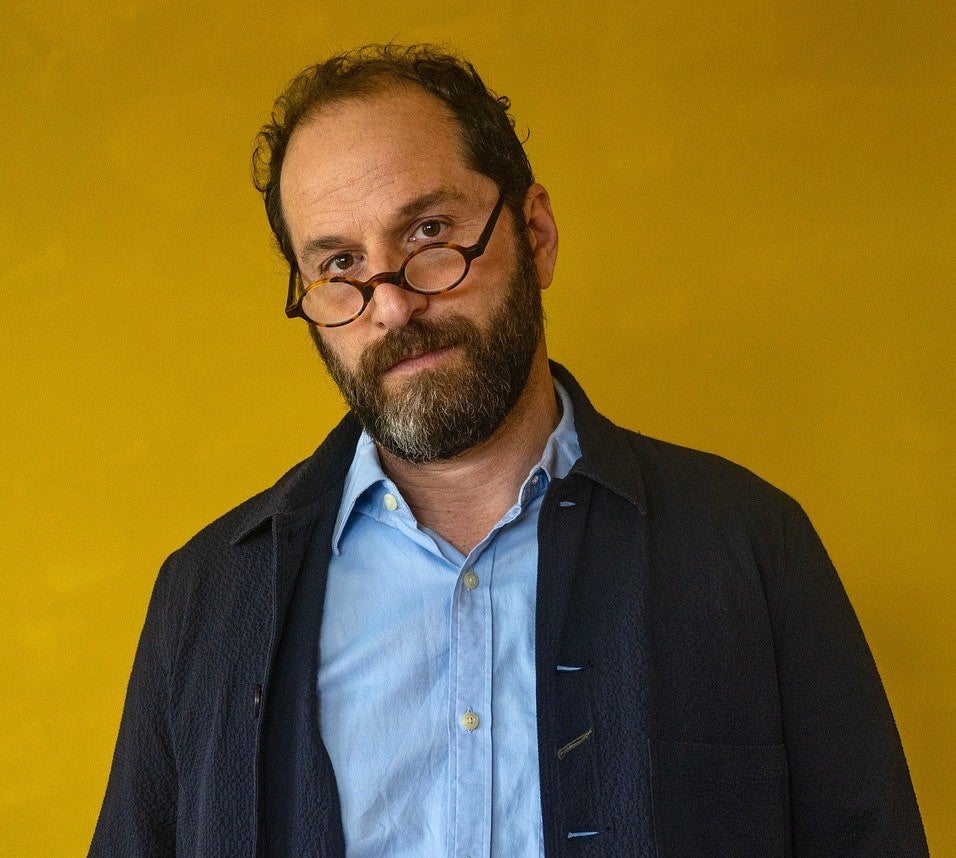
THOMAS F. HERMAN AWARD FOR SPECIALIZED PEDAGOGY
Michael Aronson
Cinema Studies

| Question | Answer |
|---|---|
| What does winning this award mean to you? |
Much of my favorite work as a teacher is done collaboratively; with my Irish colleagues for our department’s Dublin study abroad program, and with superhero Librarian Elizabeth Peterson in the development and teaching related to the Oregon Theater Project, an ongoing student-driven research project on the history of movie-going and exhibition in our home state. Putting together the time and resources to teach collaboratively can be a real challenge, and so it is extremely gratifying for this type of shared work to be recognized by the award committee and the University. |
| How would you describe what you do to someone outside of the UO? |
Making sense of the world through our shared culture of movies and movie-going.
|
| What’s the most inspiring classroom moment you’ve experienced, either as a student or a teacher? |
If I’m honest, I don’t really believe much in those O Captain! My Captain! stand on the desk moments (although I will always have a soft spot for Robin Williams). Instead, as a teacher I take pleasure in the smaller joys that happen all the time in the classroom, those ‘lightbulb’ flashes when a student recognizes how seemingly disparate things connect into a cohesive, if complex, whole.
|
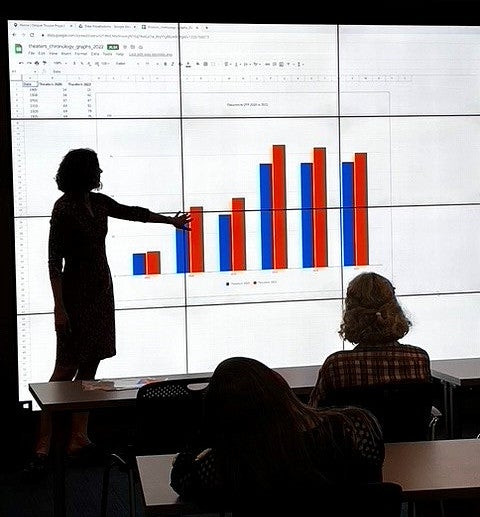
UPCOMING CLASSES
-
CINE 265 History of Motion Pictures, Part I
-
CINE 335 Exhibition & Reception (co-taught with Librarian Elizabeth Peterson)
-
CINE 410/510 Slapstick Comedy, History & Theory
-
CINE 410/510 Cinematography, Theory & Practice
At Left: Librarian Elizabeth Peterson presents students with visualizations of the historical data they produced during the term in CINE 335.
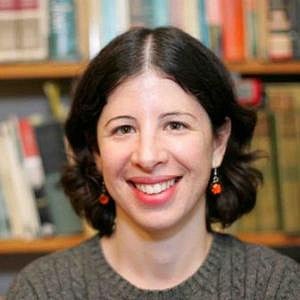
THOMAS F. HERMAN AWARD FOR SPECIALIZED PEDAGOGY
Lara Bovilsky
English

| Question | Answer |
|---|---|
|
What does winning this award mean to you?
|
Oh my goodness: I was blown away to hear the news. My work with students is what first drew me to pursue a job as a professor. I try in every class meeting to help students learn to see how strange and exciting the past is, including both its divergences from our own present moment and its strong ties to our greatest triumphs and struggles. At the same time, I want all my students to walk away from my classes feeling as though they can express their ideas more clearly, confidently, and rigorously, in ways that will serve them throughout their lives. My goal is always to help students focus on both the biggest picture of their lives and the most telling details within our culture. It was deeply moving in winning the award for me to feel as though this comes through to students.
|
|
How would you describe what you do to someone outside of the UO?
|
While I am in conversation with students about reading, culture, power, aesthetics, writing, values rooted in old books, I am also doing research on how people in the 16th and 17th centuries understood the world. Right now I'm finishing a book about how varied understandings of humanness were during that time period, and what that means for us as we think about whether the past offers us more than legacies of oppression and anthropocentrism, and where we might look for a genealogy of humbleness and tolerance.
|
|
What’s the most inspiring classroom moment you’ve experienced, either as a student or a teacher?
|
I don't think I can confine the linked experiences of teaching and learning to a single moment. To me, one of the most valuable lessons of both teaching and learning is that they never stop offering opportunities: there is always a next class, next idea, next draft, next dialogue. You can always move beyond what limits you at a given time. A joy of working with students is seeing them over time -- often years -- struggling, growing, and shaping themselves in new ways.
|
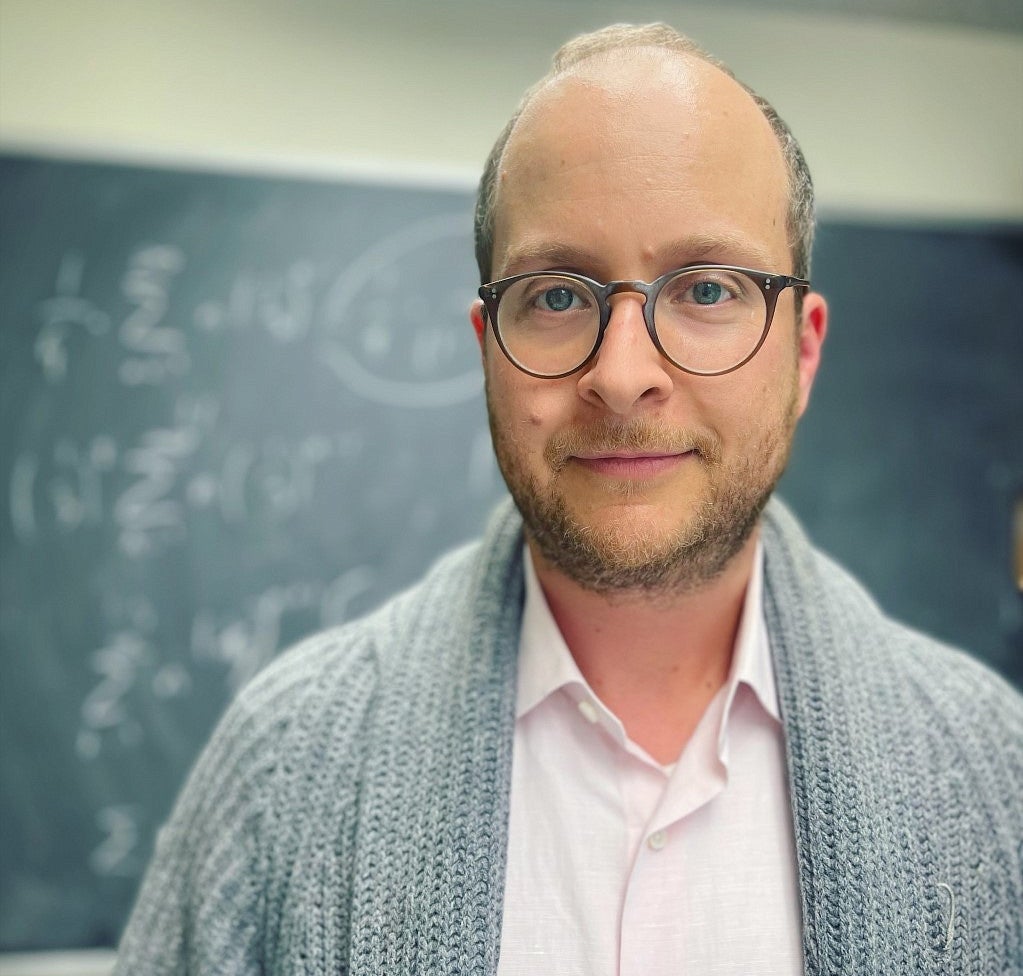
THOMAS F. HERMAN AWARD FOR SPECIALIZED PEDAGOGY
David Steinberg
Mathematics

| Question | Answer |
|---|---|
| What does winning this award mean to you? |
Of course, it is very satisfying to be acknowledged and celebrated for your hard work. Winning this award also helped me to reflect on the Mathematics Department's role in my work, how fortunate and grateful I am that they have offered me so many opportunities to practice new course design in a wide variety of contexts. I want to extend my deep thanks to everyone who has helped me become the educator I am today. They have earned a part of this award, too. |
| How would you describe what you do to someone outside of the UO? |
I teach a wide range of undergraduate mathematics classes. For the last ten years, I have been practicing a teaching model that emphasizes group work and independent student learning, and optimizes class time for discussion about the material, rather than using class time to introduce material. I am also part of a small group of mathematics faculty members who run the Eugene Math Circle, a weekly program for grade school students who enjoy math, like solving challenging problems and want to learn exciting topics that are normally outside the school curriculum. |
| What’s the most inspiring classroom moment you’ve experienced, either as a student or a teacher? |
There is a moment that recurs in many classes, with many students. A very common situation: a student will be stumped on a problem and asks me about it. If I can reply with the right question, there's a moment where it looks like the student's eyes are no longer focused on what is in front of them, their focus goes inside themselves. They snap out of it, answer my question, and in doing so, can see an approach to solving the problem they asked about. This all happens in a flash. They return to their work with a passion so real and pure you can almost feel it. Those are the moments that inspire me to rewrite and fine-tune my materials, to give every student every possible opportunity for discovery. |
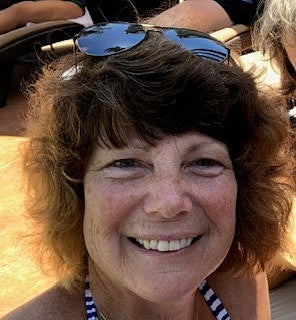
THOMAS F. HERMAN AWARD FOR OUTSTANDING ONLINE EDUCATION
Tina Starr
Business

| Question | Answer |
|---|---|
| What does winning this award mean to you? |
This award means a great deal to me as it underscores the hard work, effort and creativity that goes into building out a fully online course from an existing in-person class. I want my online courses to be fun, robust and practical, and I strive to insure that the key take-aways from my course remain relevant and useful to students long after they graduate.
|
| How would you describe what you do to someone outside of the UO? |
I teach ‘People Management and Behavior in work’! It’s what I call it the messy stuff because managing people is about understanding people more than business. My teaching draws on psychology and many other disciplines because everyone is different, we all have different motivators, and different things going on in our lives which also impact and influence how we behave at work. That’s the challenge and reality for all managers. |
| What’s the most inspiring classroom moment you’ve experienced, either as a student or a teacher? |
I think when students take the time to thank me, to tell me that their understanding of management and what it is, or means to them, has changed completely because of what they have learned in my course! As one of my students said recently “I get it now – this course is really all about people, not just business, I love that!!”
|
UPCOMING CLASSES
-
BA316 Management: Value through People (for non-business majors)
-
MGMT415 Human Resource Management (Business Majors)
-
MGMT311 Organization Behavior (business majors)
